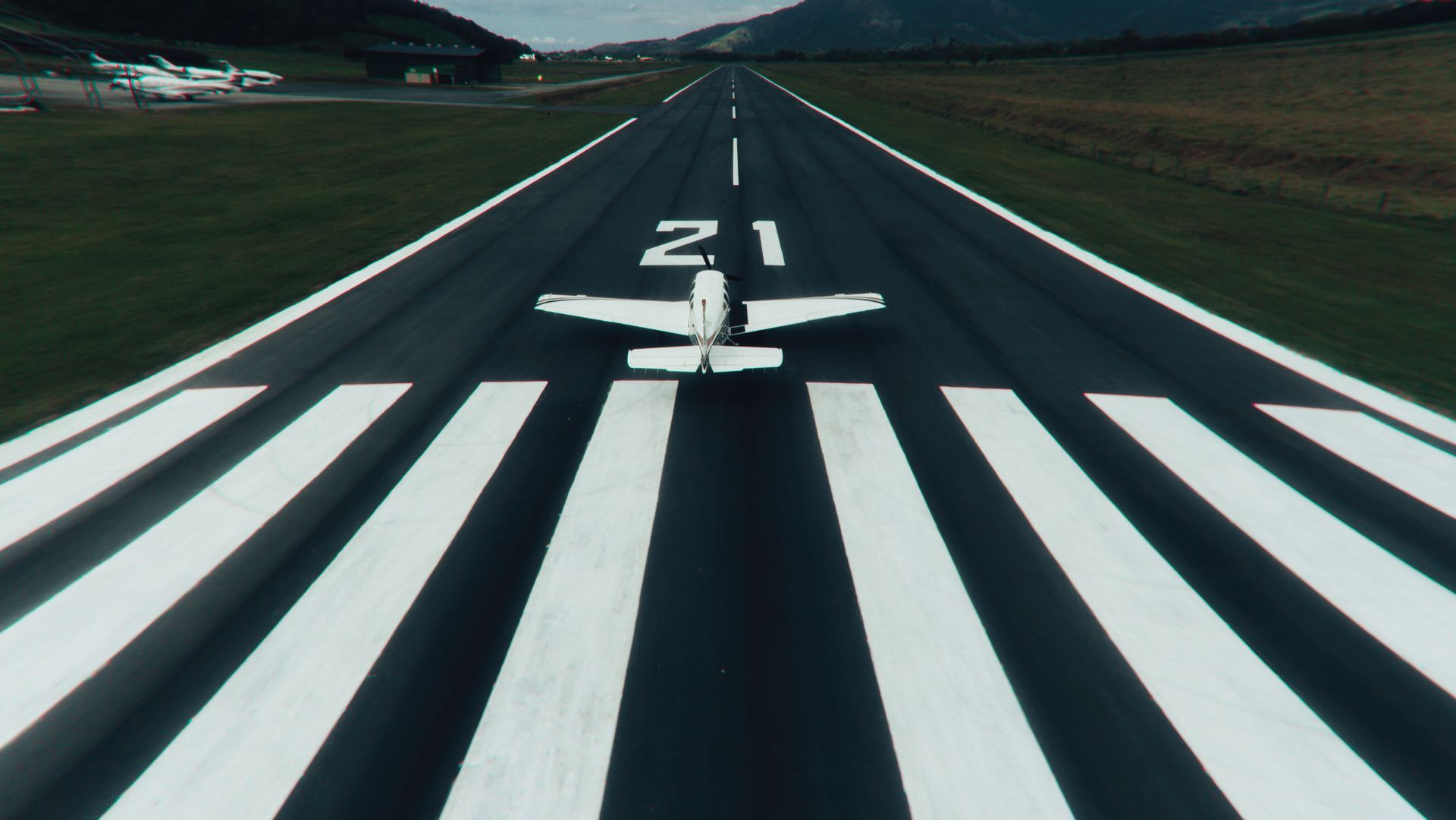“Imposter Syndrome”? You Belong in Aviation!
Re-frame it and keep going — because you belong here

“Imposter Syndrome” should be re-framed as a self-doubt and self-blame response to rampant sexism, racism and gaslighting in aviation.
A 2021 article in the Harvard Business Review says: "Imposter syndrome took a fairly universal feeling of discomfort, second-guessing, and mild anxiety in the workplace and pathologized it, especially for women. As wh¡te men progress, their feelings of doubt usually abate as their work and intelligence are validated over time. They’re able to find role models who are like them, and rarely if ever do others question their competence, contributions, or leadership style. Women experience the opposite." [emphasis mine]
Men Don’t Get It
Male pilots don’t say they have “Imposter Syndrome”, not even when they undertake the challenge of learning to fly a big jet airliner. They might have private doubts, wonder if they’ve bit off more than they can chew — but they don’t say they feel like “imposters” in aviation.
And women don’t say they have “Imposter Syndrome” when attempting to do something really really hard yet gender-normative, such as raising three kids or leading the local PTA.
Society’s starting point is the assumption that men are inherently capable of leadership, like managing a large group of employees or being an airline captain. That’s not the starting point for women or people of color. Societal messaging about what is okay and not okay for women to pursue and accomplish in life begins early and is so pervasive that it eventually gets internalized. It’s why some intelligent ambitious women end up majoring in Education rather than Engineering or end up as Flight Attendants rather than Pilots. Any of these choices are valid, of course, but isn’t it interesting which direction women are steered in?
Image versus Reality
There’s more and more outreach and promotion showing photos of women pilots that essentially say, “Go for it! You can do it, girl!”
Then there’s the harsh reality of aviation that still today seems stuck in the 1950s, when all those wonderful WASPs and Mercury 13 were sent back home empty-handed.
To the woman who overcomes societal messaging to bravely show up at the airport, aviation says in so many ways that it’s still just for men. From the scarcity of women pilot peers and paucity of women aviation leaders, to the letters addressed to “Sir” or “Gentlemen”, aircraft and life-saving gear wrong-sized for women's bodies, school shirts that look unflattering on busty women, and the airline pilot uniform modeled on the men’s business suit… it goes on and on.
The guys at the airport think the new woman student pilot is just adorbs — until she pursues advanced flight ratings and announces her intention to become a professional pilot. Confidence is equated with competence — in men. But a woman aiming high is suddenly “uppity” and “too big for her britches” and “doesn’t know her place.” The friendliness and mentoring dry up. Meanwhile, boys and men keep getting encouragement to pursue their dream to become professional pilots.
And then some men go farther, giving “special” treatment to women pilots. Sexual aggression. Silent treatment. Ignoring her. Excluding her. ‘Jokes’ that disparage women. Making fun of her and her perfectly normal beginner’s mistakes. Rude remarks about her body and bodily functions. Pointedly misogynistic commentary. Holding her to a higher standard of performance in training and checking. All while whining about “how easy women have it these days”.
U.S. law makes it explicitly clear that educational institutions and corporate employers have the responsibility to maintain a safe environment for everyone to study, learn, and work, free of harassment and discrimination. It’s up to those entities to establish a code of conduct and set expectations for everyone’s behavior and correct the ones who stray into misconduct.
Yet harassment remains a stubborn barrier to women's progress in aviation.
The message is loud and clear: “You don’t naturally belong here. You have to prove yourself worthy of membership. You few who brazen through the barriers will be barely tolerated at best and probably harassed and maybe even assaulted — that’s the price of admission. And it is you who must adapt to this, the men’s world of aviation”.
So, WOW! Little wonder some women pilots end up doubting their own capabilities!
A Neat Trick
Notice that calling it “Imposter Syndrome” shifts responsibility away from society and the powers-that-be in aviation, away from individual harassers and haters, letting them completely off the hook. Women have been gaslit into pinning the “Imposter Syndrome” badge on themselves, which neatly shifts the burden of responsibility onto her own shoulders. Now it’s her problem, a problem which she alone must overcome through self-help books, affirmations, and sheer willpower.
It’s a really neat trick.
That’s all it is, though — a trick.
Sure, you are probably making mistakes as you train and fly. And you may need some help building self-confidence. But don’t believe everything you hear, or think. Don’t buy into all the bullsh¡t.
Overcome Self-Doubt
Reality Check: Gauge your progress with empirical data, such as test scores or progress reports or a stage check. Ask someone trustworthy to give you a “howgozit” — are you progressing normally for this stage? Be careful to ask someone who is experienced enough to know, and who is either neutral or rooting for you. Don’t give someone biased the opportunity to gaslight you.
Filter Incoming Data: Think about all the messages, implicit and explicit, that you’ve been receiving about your dream of being a professional pilot. And about how some got reformulated as personal problems. The subtle external “Women aren’t welcome here” shifting to “I don’t belong here”. Or someone asking “Are you sure you are capable of this?” morphing into “I don’t think I’m capable of this”.
Examine external messages from all sources, including friends, family, and your significant other, and from people in aviation like other pilots and instructors. Are you getting positive encouragement and support? Are some people telegraphing skepticism or being unhelpful or saying downright nasty things? Who is supportive and who is undermining your confidence?
Ask yourself, “Is it true?” (The Work of Byron Katie.)
Put on a noise-cancelling headset and tune out the static. Turn up the volume on your supporters. Tune out the naysayers and gaslighters. Fine-tune the boundaries with friends and family who express doubts about your dreams. It might even be time to cancel someone and get divorced (yup — been there!).
Take a Deep Dive: Maybe it’s an inside job. Pay attention to your negative self-talk, like “I’m overreaching” or “I’m not good enough”. Are these deep-seated beliefs and old patterns from childhood being carried over to new endeavors?
Again you can ask, “Is it true? Is it REALLY?”
Put on a hard hat, maybe get a therapist, and get curious. Drill down deep to excavate these unhelpful thought patterns that interfere with you reaching your full potential.
Aviation’s Dirty Little Secret
With 40+ years and 19,000+ hours in my logbook, I’ll let you in on a dirty little secret. If you had a crystal ball to peer into flight school training aircraft and airline flight simulators, to see test scores and observe checkrides and watch pro pilots on the job, you’d see that plenty of men pilots struggle and make mistakes. Despite all the swagger and trash talk about women pilots, those guys are not god’s gift to aviation or anything special. Studies have shown that stereotypic beliefs that women pilots are less capable is not supported by research; there is no gender difference in accidents attributed to pilot error. In fact, men pilots have a higher fatal accident rate.
So if you think that you aren’t on par with the majority of men at your flight school or airline, you are probably mistaken. Many many women pilots can match or outshine them. And you can, too.
YOU belong here in aviation, as much as anyone else.
© 2023 Jenny Beatty. All Rights Reserved.
Photo credit: Thanatasdcom









